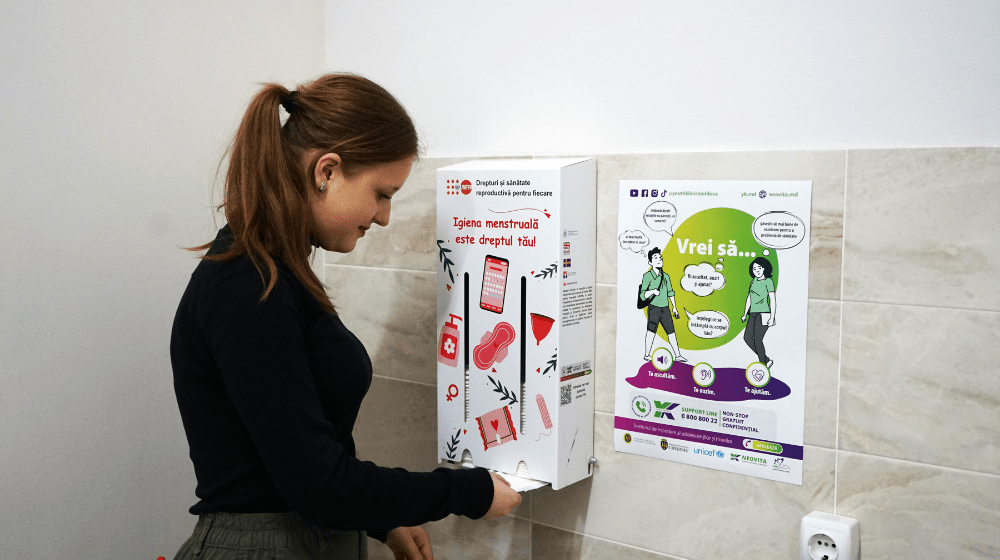41 Youth Klinic health centers and 24 Youth Centers across the country have been equipped with dispensers containing free sanitary pads for girls as part of a menstrual health and hygiene program conducted by the United Nations Population Fund (UNFPA). Overall, over 200,000 teenage girls and young women who attend these centers annually will have access to menstrual hygiene products for free.
"Many girls find themselves in situations where they need a sanitary pad but don't have one with them, don't have anyone to ask, and therefore go through embarrassing situations. Accordingly, accessing the sanitary pad dispenser at Youth Klinic Neovita is very useful. I would like us to have them in school as well because menstruation can start during class, and then if we don't have a pad with us, we have to ask for permission to go home," says Valeria, a 14-year-old volunteer at YK Neovita.
The program aims to contribute to creating a friendly and safe environment and to encourage open communication about taboo subjects related to the sexual and reproductive health of girls and boys. It is carried out by UNFPA in partnership with the Ministry of Education and Research (MER), the Youth Media Center, and the Suntparinte. md media platform, with financial support from the United Kingdom and the Embassy of Sweden.
Youth centers are safe and friendly spaces for youth development, with 70% of the young people who attend them annually being girls. "It is essential for young people, especially girls, to feel comfortable and safe at the center," says Irina Josu, interim head of the Cimișlia District Youth Center. "We are very pleased to have received this dispenser; girls feel much freer because they can take sanitary pads without asking for permission when they need one," Irina Josu adds.
Youth Klinic health centers provide comprehensive multi-disciplinary health services tailored to the developmental and health needs of adolescents and young people aged 10-24. "We are grateful to UNFPA for contributing to improving the conditions within the Youth Klinic network. These sanitary pad dispensers provide girls with the opportunity to feel safe regarding menstrual hygiene," says Galina Leșco, a gynecologist-obstetrician and head of the Resource Center at the national level for NEOVITA youth-friendly health services, which coordinates the activities of the Youth Klinic network.
Additionally, in 2024, the menstrual health and hygiene program is piloted in four schools, equipped with dispensers and sanitary pads provided free of charge to girls. Furthermore, these institutions have set up a doctor's office, a school psychologist's office, and a classroom friendly for teaching life skills to adolescents. The pilot results will provide data for estimating the costs of ensuring access to free menstrual hygiene products in all schools in the country.


